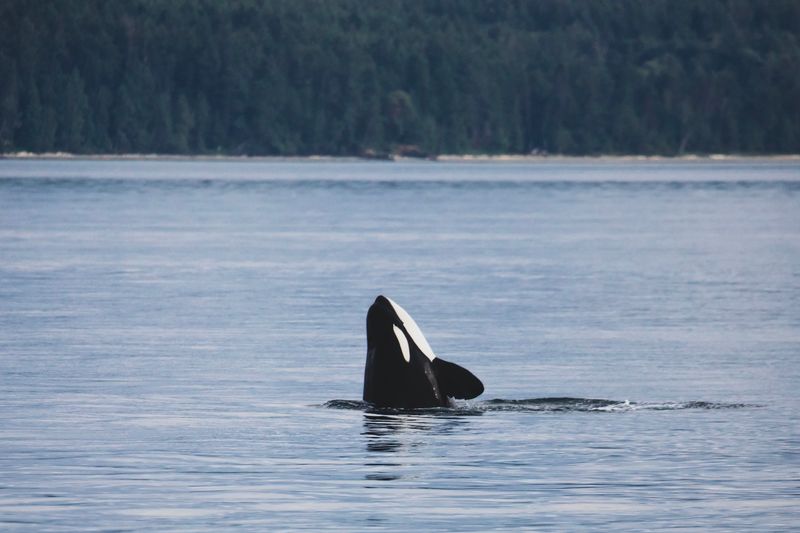End of an Era: Lolita the Orca Dies at Miami Seaquarium
A Life in Captivity
On August 18, 2023, Lolita, the beloved orca at the Miami Seaquarium, passed away after entertaining guests for more than 50 years. Operating under the name Tokitae or Toki, she had become an iconic figure in the park, captivating visitors with her majestic presence and impressive performances. Lolita‘s death comes amidst a backdrop of controversy surrounding the treatment of marine mammals in captivity. It also highlights the ongoing debate about the ethical issues surrounding animal captivity and the legacy that Lolita leaves behind.
Public Pressure and a Planned Release
The Miami Seaquarium had faced mounting pressure from animal advocates who protested against the captivity of marine animals. In response to these concerns, the Seaquarium announced in February its intention to return Lolita to the ocean. With plans in motion for her relocation, the Dolphin Company, which owns the park, stated that the release would take place in approximately 18 to 24 months.
A Controversial History
The controversy surrounding aquariums and theme parks with killer whales has been ongoing for years, with advocates and regulators raising concerns about the treatment of these intelligent creatures in captivity. The criticism has led to significant changes within the industry. In 2016, SeaWorld announced that it would no longer breed killer whales in response to public outcry. However, Lolita‘s case at the Miami Seaquarium remained a flashpoint for animal rights activists.
Lolita‘s Health and Well-being
Though Lolita‘s condition had been a topic of concern, the Seaquarium provided updates on her well-being. Just days before her death, they reported that she was “very stable” for a 50-year-old orca. She had a good appetite and was under the care of a team of veterinarians who monitored her physical and mental health. However, despite their efforts, Lolita‘s health suddenly deteriorated, leading to her passing.
An Ethical Debate
People for the Ethical Treatment of Animals (PETA) have long criticized the conditions in which Lolita was kept, referring to her tank as “the smallest, bleakest orca tank in the world,” suggesting severe psychological trauma from prolonged confinement. The debate around animal rights and captivity continues to raise questions about the moral implications of keeping marine mammals in captivity.
Editorial: The Legacy of Lolita and the Future of Marine Life Conservation
A Reflection on Lolita‘s Life
Lolita‘s passing marks the end of an era, not only for the Miami Seaquarium but for the broader conversation surrounding the ethical treatment of animals in captivity. For over half a century, she served as a source of entertainment and inspiration for visitors, leaving an indelible mark on all who had the privilege of witnessing her grace and beauty. However, her legacy also serves as a reminder of the complexities and controversies that surround marine mammal captivity.
Continuing the Conservation Efforts
While Lolita‘s release back into her home waters was unfortunately not realized, her story has shone a spotlight on the need for improved animal welfare and the preservation of marine life. The efforts made to enhance her living conditions in the past year should not be in vain but rather serve as a catalyst for continued conservation efforts.
Redefining the Role of Aquatic Parks
The death of Lolita calls for a reassessment of the role of aquatic parks in our society. As public sentiment shifts towards a greater awareness of animal rights and ethical treatment, there is an opportunity for these parks to redefine themselves as centers for education, research, and conservation. By prioritizing the well-being and rehabilitation of marine life, they can become beacons of hope and progress in the fight for species preservation.
Advice: Moving Towards a More Ethical Future
Supporting Conservation Efforts
The public has a crucial role to play in shaping the future of marine life conservation. By supporting organizations dedicated to the welfare of marine mammals and the preservation of their natural habitats, individuals can contribute to the ongoing efforts to protect these majestic creatures. Taking part in educational programs and advocating for stricter regulations regarding animal captivity are other ways to make a positive impact.
Raising Awareness and Standing up for Animal Rights
Raising awareness about the ethical issues surrounding animal captivity is essential. By engaging in thoughtful discussions, sharing information, and challenging outdated perceptions, individuals can foster a greater understanding of the complex relationship between humans and wildlife. Furthermore, advocating for stronger legal protections and reforms that prioritize animal welfare can help ensure a more ethical future for all living beings.
Choosing Responsible Tourism
When planning vacations and outings, individuals should consider alternatives to venues that showcase marine mammals in captivity. Look for opportunities to experience marine life in their natural habitats, such as eco-tours, wildlife sanctuaries, and research institutions committed to animal welfare. By supporting responsible tourism, individuals can choose to appreciate and learn about marine life without contributing to their exploitation.
In the wake of Lolita‘s passing, let us remember her as a symbol of the ongoing struggle for animal rights and ethical treatment. May her legacy inspire a future where marine life thrives in its natural habitat, free from the confines of captivity.

<< photo by Andre Estevez >>
The image is for illustrative purposes only and does not depict the actual situation.
You might want to read !
- Lamenting the Loss: The Tragic Demise of Lolita, the Long-Captive Orca
- “The Resilience of Amber Heard: A Look into Her Life Post ‘Depp v. Heard’ Trial”
- The Legacy of Johnny Hardwick: Remembering the Voice of Dale from ‘King of the Hill’
- A Legacy Continues: Dre Kirkpatrick Jr. Commits to Crimson Tide
- Crimson Tide Lands Top Recruit: Dre Kirkpatrick Jr. Commits to Alabama Football
- The Enigma of Michael Jordan: Silence Amidst Larsa Pippen’s Revelations
- The Mega Millions Jackpot: The End of an Era
- The Departure of Mark Jackson: Exploring the End of an ESPN Era
- The End of an Era: Yellow, a Century-Old Trucking Giant, Closes Its Doors
- “Death Toll Rises: The Alarming Reality of Horse Racing at Churchill Downs”
- Are Sun Bears Really People in Disguise? Chinese Zoo Faces Controversy
- Are Sun Bears Human? Chinese Zoo Claims Otherwise
- “Sink Your Teeth Into Shark Week 2023: Ultimate Viewing Guide and Schedule!”
- An Ethereal Encounter: Witness the Unlikely Bond Between a Fearless Woman and a Great White Shark
- “Evacuation Orders Issued as Wildfire Threat Looms Over…”
- “Devastating Deluge: Escaping the Flames – A Glimpse into the Heartbreaking Exodus from Kelowna and Beyond”
- Exposing the Truth: The Controversy Surrounding Sun Bears in a Chinese Zoo
- Tragedy Strikes Preakness Stakes with Horse Euthanized Hours Before Racing




